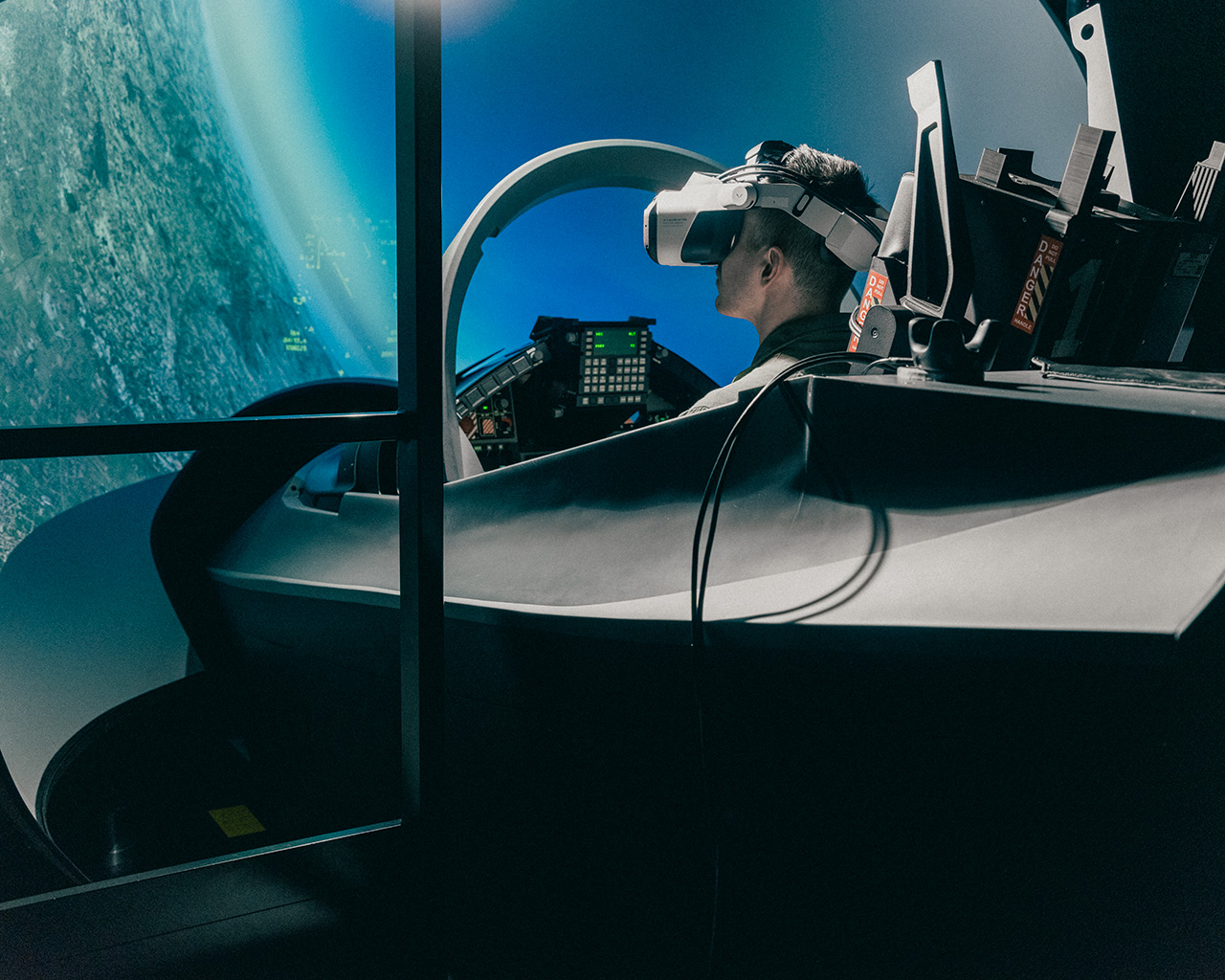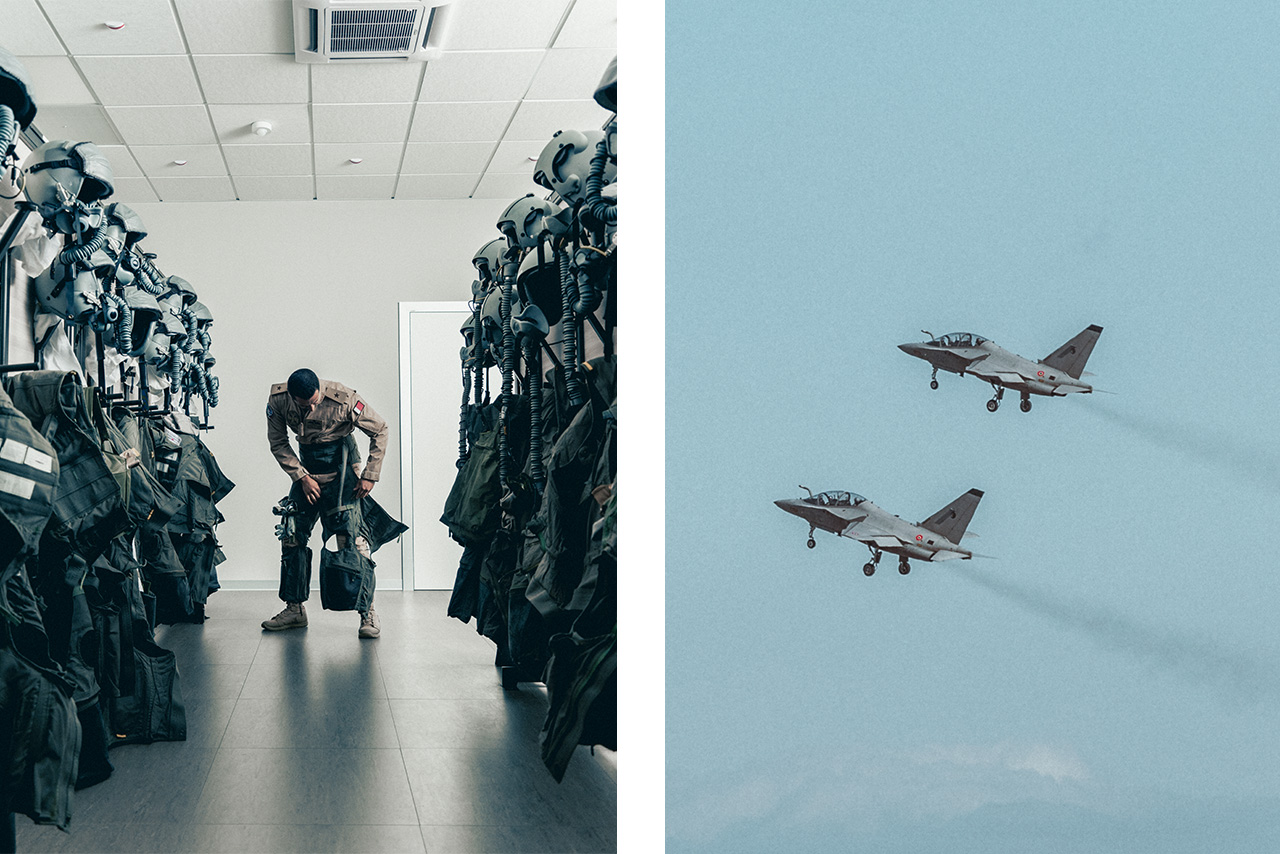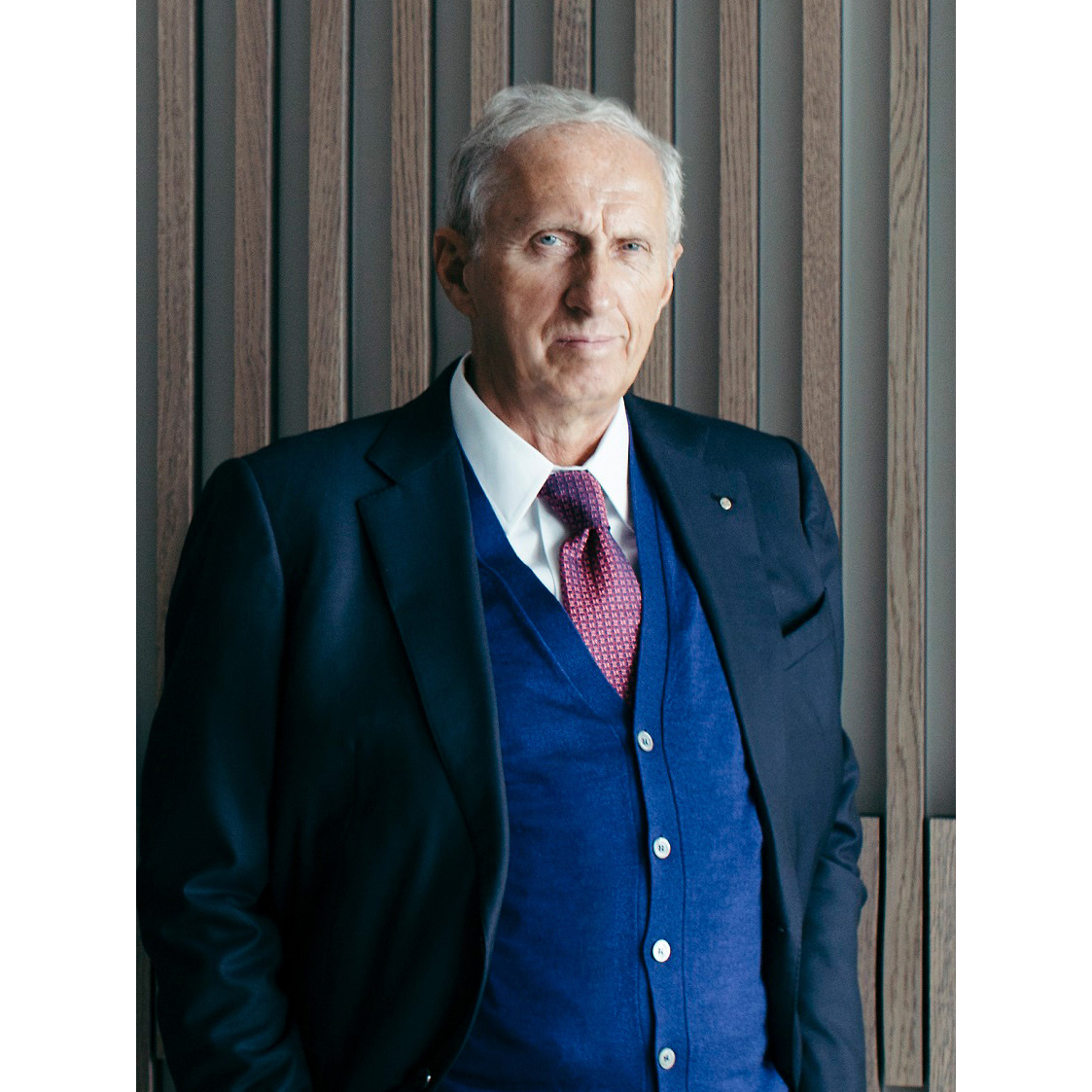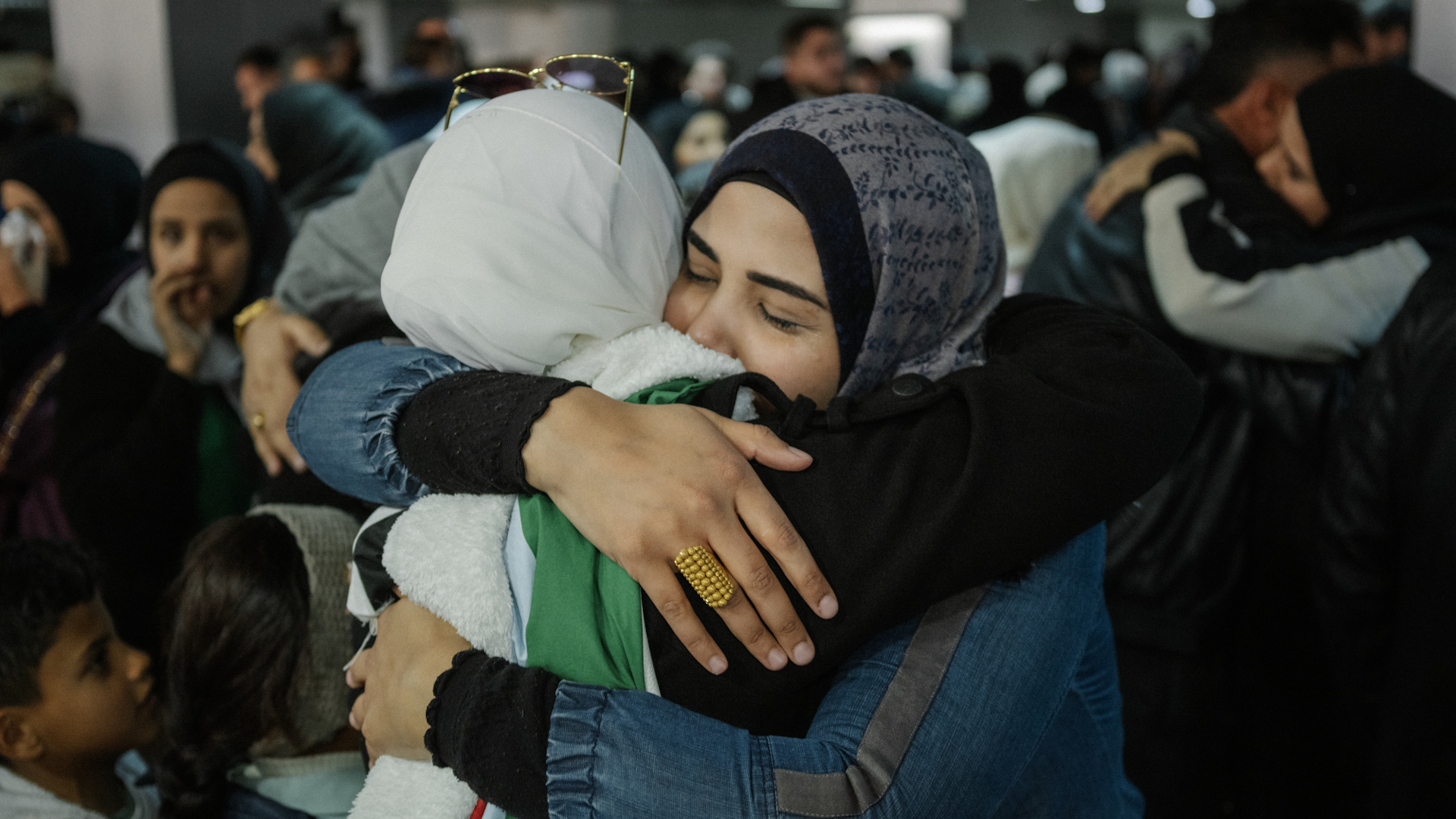The overconfidence of Google’s AI, Sardinia’s jet-fighter school, Stockholm’s electric ferries and Giovanni Anzani.
|
Tuesday 6/5/25
|

|
|
London
Paris
Zürich
Milan
Bangkok
Tokyo
Toronto
|
|
|
|

Good morning from Midori House. For more news and views, tune in to Monocle Radio. Here’s what’s coming up in today’s Monocle Minute:
THE OPINION: Brazil shifts westward
TECHNOLOGY: The overconfidence of Google’s AI
IN PRINT: Sardinia’s jet-fighter school
TRANSPORT: Stockholm’s electric ferries
Q&A: Poliform CEO, Giovanni Anzani
|
|
In Brazil’s agricultural boom towns, ‘sertanejo’ now trumps bossa nova
By Bryan Harris
|

|
Think of Brazil and Rio de Janeiro will likely spring to mind: the golden-sand beaches, the mountainous backdrop, the gentle yearning of bossa nova or samba’s lively percussion echoing in the distance. It’s a familiar image and one that the country’s tourism authorities have long promoted. But it’s also increasingly out of touch, especially in light of the cultural, economic and geographical transformation that has taken place in Latin America’s largest nation over the past two decades.

Heading west: Brazilian sertanejo duo Chitãozinho & Xororó
Once the country’s capital, Rio is now mostly a tourist attraction. Today the real engines of the Brazilian economy are the agricultural powerhouses in western states such as Mato Grosso, Mato Grosso do Sul and Goiás. For centuries, this vast swath of Brazil – an area roughly the size of Western Europe – was considered inhospitable and unsuitable for agriculture as a result of its extreme temperatures and dry, baked soil. But scientific developments in crop production and soil management have tamed the land and the region is now a leading producer of some of the world’s most important foodstuffs, including beef and soybeans. The agricultural boom has minted a new generation of millionaires and billionaires, while states such as Mato Grosso now have some of the highest GDPs per capita in the country. Out west, progress and development are the buzzwords of the day.
The economic changes have led to a cultural shift. Migrants have flocked to these new boom towns, fuelling the rise of a new conservative culture. In religion, that has meant the spread of evangelicalism. In terms of politics, conservative figures such as former president Jair Bolsonaro have enjoyed a rise in support. And in the popular imagination, it has meant cowboy culture and, above all, sertanejo – Brazil’s version of country music that is typically performed by double acts, or duplas, wearing hats and boots. While the traditional ballads were about the joys and hardships of rural life, the modern iteration tends to focus on love affairs and heartbreak. Today sertanejo is Brazil’s most popular musical genre; according to a recent survey by polling company Quaest, some 26 per cent of the population listened to it. Gospel music, often linked to Brazil’s conservative rebirth and the spread of evangelical churches, is the second most popular genre at 19 per cent. Samba places fourth and its offspring, bossa nova – that stereotypical sound of Rio de Janeiro – does not make the list at all.
Harris is a Monocle contributor based in São Paulo. For more opinion, analysis and insight, subscribe to Monocle today.
|
|
technology: Global
Google’s new AI service demonstrates that you get what you give
You might – and certainly should – be familiar with the acronym “Gigo” (writes Andrew Mueller). It stands for “garbage in, garbage out” and is a reminder that however clever the computational apparatus that you are employing, it is unlikely to return conclusions that are any more accurate or useful than the information that it has been given.
Generative AI is a supreme illustration of the Gigo maxim. Some online merriment has been conjured from mischievous enquiries to Google’s AI Overviews about the genesis and meaning of various folk phrases – none of which are actually in colloquial currency. Accordingly, AI Overviews has confidently explained the etymology of made-up expressions such as “You can’t lick a badger twice”.
Though amusing, it is also a terrifying glimpse of the AI-powered future. The technology works largely off human-created source material – much of which is ignorant, fabricated or fraudulent. That said, such is the appetite of the internet that it is conceivable that at least one of the meaningless aphorisms recently used to taunt Google’s AI feature will be absorbed into the lexicon. Future generations might remind each other of the folly of relying on AI by sombrely saying, “Never wash a rabbit in a cabbage.”

|
|
Eurostar  MONOCLE MONOCLE
|
|
In print: sardinia
The jet-fighter school where virtual technology is your wingman
Wishing a fighter pilot a good flight isn’t the done thing, apparently. Former Italian Air Force (IAF) pilot Stefano Centioni, who now works for the country’s largest defence contractor, Leonardo, winces at the very suggestion of doing so. “That’s the sort of thing that you say to a Ryanair pilot,” he says.

Head in the game: The M-346 trainer in flight

Donning a G-suit pre-mission (on left) and a pair of Leonardo M-346s
For the May issue, Monocle visited the International Flight Training School (IFTS) in Sardinia – a collaboration between the public and private sectors that is aiming to become top gun in the niche of fighter-pilot training. The school is based in the IAF’s Decimomannu Air Base, nestled in undulating scrubland a short drive from the city of Cagliari. As Europe works to scale up its arms-production capabilities in a bid to wean itself off its over-reliance on the US, Leonardo is expected to benefit. Currently Europe’s third-largest defence company, it is branching out into new areas, from aerospace to training, which is where IFTS comes in. The array of national flags flapping in the breeze in front of the reception indicates how many nationalities make up the facility’s student and teacher corps, which are as diverse as a Sardian beach in summer.
|
|
transport: stockholm
Stockholm’s electric ferries promise speedy, sustainable transportation
Stockholm’s electric hydrofoil ferry, Nova, is returning to service now that the winter ice on Lake Mälaren has thawed (writes Liv Lewitschnik). Runnning between the western island suburb of Ekerö and the city centre, the route cuts commute times for passengers by half.

Cruising altitude: The Nova electric hydrofoil ferry
Launched by Swedish company Candela, the vessel is a world first. The company’s CEO, Gustav Hasselskog, hopes that it’ll change the way that we use water in cities and help us to cut emissions. “This is a shift for urban transport and is leading to a revival of our waterways.” Nova is the first of Candela’s new P-12 models to enter service. It runs entirely on electricity and is kitted with wings that lift the hull out of the water. This reduces its energy consumption by more than 80 per cent compared to the standard commuter ferry by evading friction against the waters’ surface. “Conventional ships haven’t evolved much in the past 100 years and are among the least energy-efficient transport modes,” says Hasselskog.
Since Nova flies above the water, it creates hardly any wake, allowing it to cruise at 25 knots within city limits. On lunch breaks, Nova powers up at an electric-car charger at Stockholm’s City Hall before taking flight across the archipelago. The P-12 is now making waves outside of Sweden. Expect to see it shuttling between the shores of Lake Tahoe in California, as well as in Berlin, Saudi Arabia and New Zealand.
|
|
Q&A: Giovanni Anzani
The CEO of Poliform tells us what’s on the Italian furniture company’s to-do list
Poliform is a brand renowned for its comprehensive range of custom-made systems and luxury furnishings. Established in 1942, the Brianza-based company is now under the stewardship of Giovanni Anzani and his cousins Alberto and Aldo Spinelli. Over the decades, it has maintained its commitment to high-end craftsmanship while also exporting Italian quality to the world.

What are Poliform’s priorities for 2025?
From an economic perspective, our presence in international markets continues to grow. In 2023, for instance, we recorded a 9 per cent increase in sales turnover, reaching a figure of approximately €256m. This success is the result of our dedication to innovation and quality, and we are determined to continue on this trajectory. China is gradually recovering; Germany and France will find a new balance. There is a wealth of products heading to the US too.
How does Poliform balance its past and present?
Our most valuable assets are cultural heritage and technological know-how. With creativity and expertise inherited from the traditions of Brianza – the world’s best furniture district – combined with cutting-edge ingenuity, Poliform can meet the needs of an international audience while maintaining a typically artisanal approach.
How will Poliform grow in the future?
We’ll continue to focus on the “Poliform Home” design concept, which will showcase how every component [of our collection] is stylistically coherent. It’s a global project in which the versatility of our modular systems can be fashioned to suit any architectural situation.
For more insights from the world of design, pick up a copy of Monocle’s dedicated Salone del Mobile newspaper.
|
|
Monocle Films: BUSINESS
Syria, from the ground up
Just months after the fall of Bashar al-Assad, Syria is rebuilding – both its institutions and its battered cities. For Monocle’s April issue, our Istanbul correspondent Hannah Lucinda Smith joins a flight from Istanbul packed with returnees and Turkish investors to discover how the nation’s future is shaping up. Photography by Emin Ozmen.

|
|
| | |